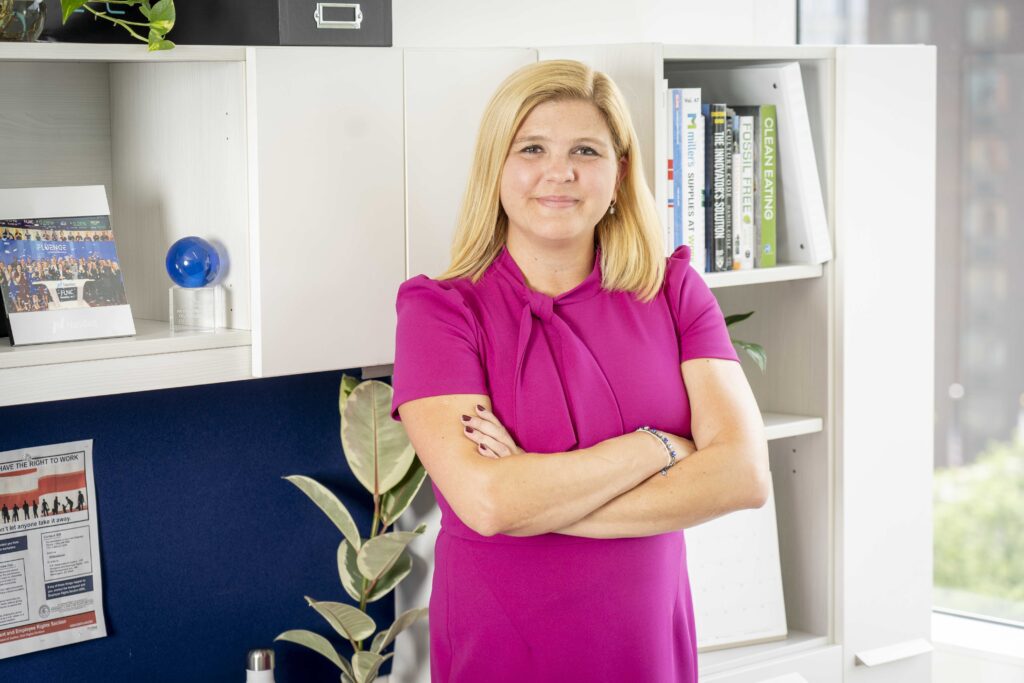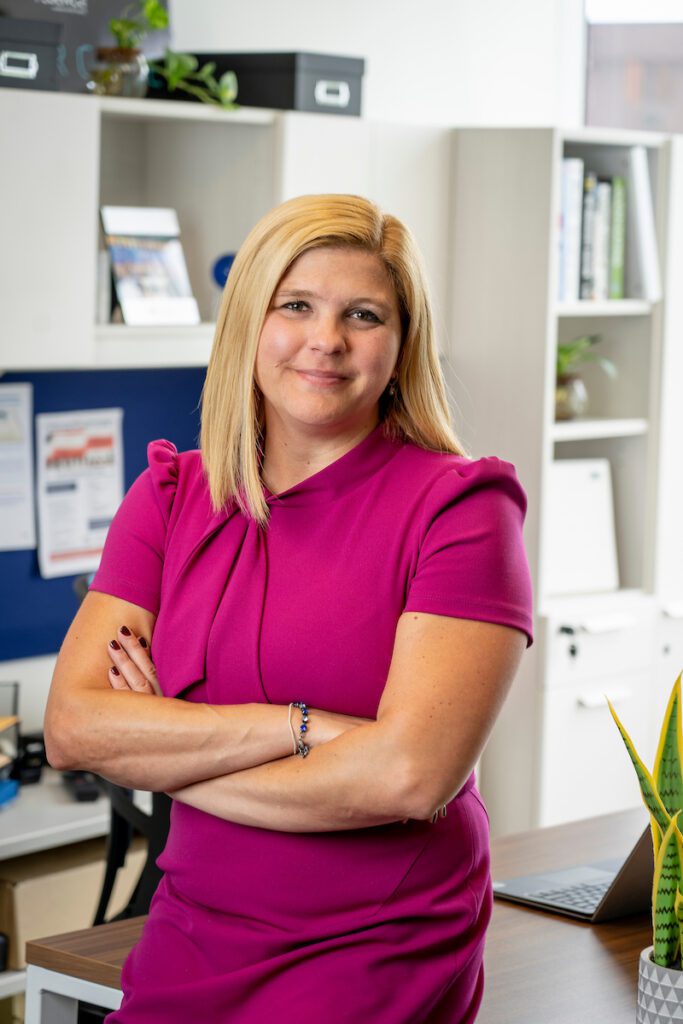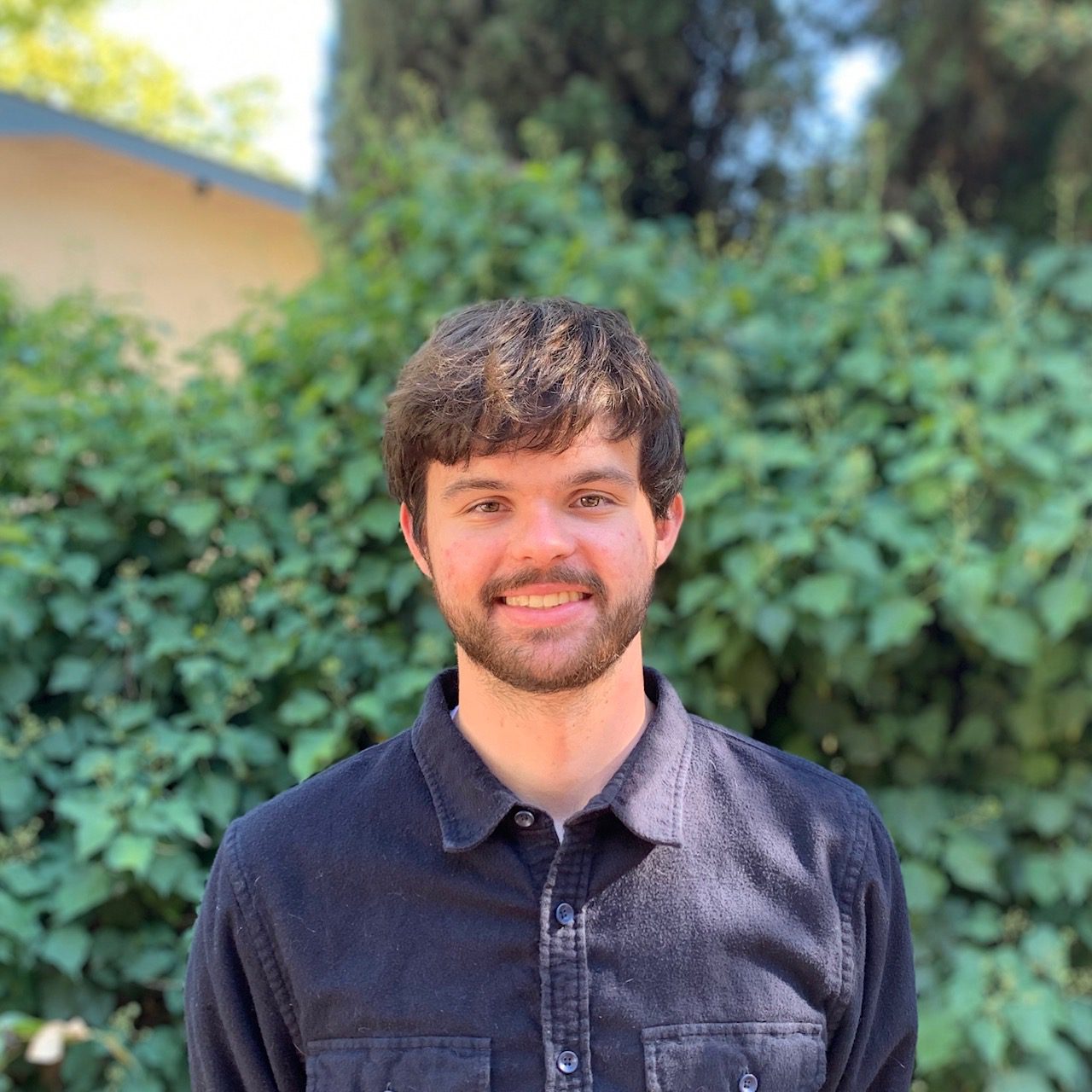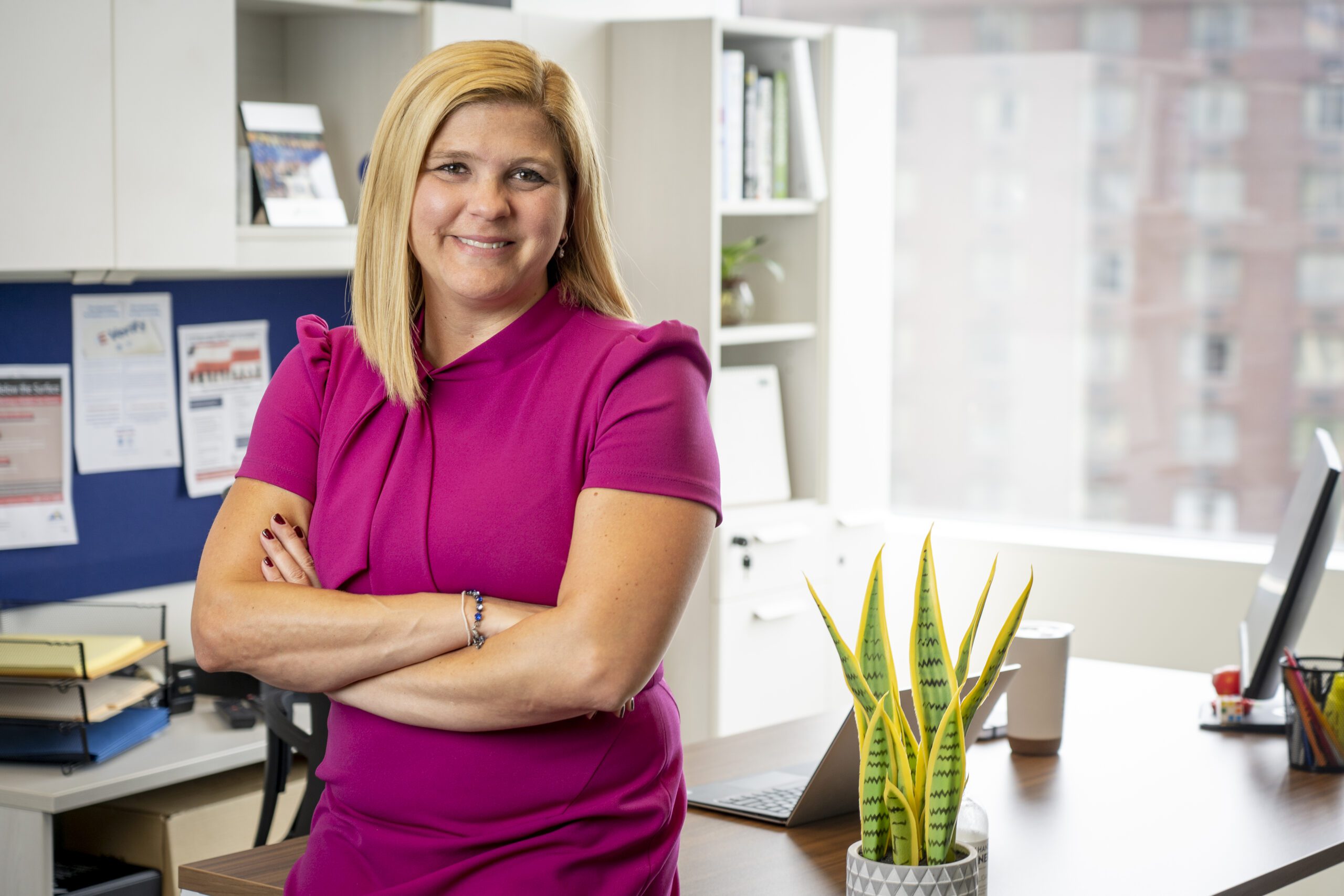As chief human resources officer and VP of global HR at Fluence, Larissa Cerqueira brings a global talent management perspective and strategy to help create a sustainable culture and future for her people. Before joining Fluence in January 2020, Cerqueira occupied leading HR roles from Brazil to Germany. In organizations such as Henkel and Gilbarco Veeder-Root, she developed talent and leadership development programs and partnered with HR groups to realize the potential of global teams.
At Fluence, Cerqueira knows what her team needs now and in the future through her experience working with global subcultures. With a calm, focused leadership style and ability to connect with the feelings and concerns of her team, she excels at helping them achieve their shared mission of a sustainably powered future. “She’s very professional, a hard worker, and extremely responsible,” says Manuel Perez Dubuc, CEO at Fluence. “It’s fantastic when all those skills and experiences are in one person.”
Starting from the court
Growing up in Brazil, playing volleyball was at the heart of Cerqueira’s world and the beginning of her path to working in corporate talent management. With an initial passion for sports psychology, she was always fascinated with performance. Her team psychologists were always “looking to build high-performance teams, so I was very excited to do that,” Cerqueira says. She was eventually drawn to organizational psychology for the same reason: “How can I take the team analogy or the team sports practice into an organization? The more I studied behavior and the potential of all these things to really advance people’s careers, the more excited I became.”
With her undergraduate degree in psychology in hand from the University of Brazil, Cerqueira was already working in recruitment and performance management when she entered a trainee program with an eventual position at a Brazilian company, Andrade Gutierrez, where she met a lifelong mentor. In addition to introducing Cerqueira to performance and behavioral assessments of people, her mentor “passed on to me the passion of understanding these things and how it plays out in our organization,” she says.

Cerqueira credits mentors and former managers — both good and bad — with helping her gain the knowledge and learn the lessons to get where she is today. “I’ve had wonderful ones, and I’ve had not-so-wonderful ones,” Cerqueira says. “I think we need to learn from all of them. Even the people that were not super inspirational, that teaches you perspective. Poor leaders don’t unlock potential, they unlock fear and compliance.”
Eventually, her mentors proved their value by explaining the reality that there were limited experiences for her in Brazil with companies operating elsewhere, so she ended up moving internationally twice in her career — to Germany, back to Brazil and then to the U.S. “Those leaders really helped me understand those next steps and understand what’s out there,” she says. “If you’re just in Brazil, just in a region, there’s a limit on opportunities for you, at least in companies that are not from Brazil.” Growing up, she never expected to work as a CHRO for an energy company; with her mom at home and her dad in the Brazilian army for 45 years, the corporate world wasn’t even a concept. “Mentors are really the ones to help you and feed you new possibilities,” she says.
In Germany, she took her first global talent management role developing global leadership development for a large company, Henkel. She says it was challenging but eye-opening. “This is absolutely what I want to do,” Cerqueira remembers. “I had so many opportunities to really work with different cultures. I made tons of mistakes, but it was absolutely a tipping point for me.”
Cerqueira says the lateral moves she made were hugely beneficial and ultimately brought her to the U.S. It allowed her to operate in an HR role she already knew how to do, but at the same time adjust herself and her family — including an 18-month-old daughter — to an entirely new culture with new labor laws and practices. “I got to those points in my career because I had wonderful people to say it works,” she says. “You don’t have to always be shooting for the stars. What are you in a hurry for?”
Eventually, she knew she was ready to be the sole HR leader of a company and put together all the pieces gained from her experiences, so she bet on herself and joined a smaller company, Gilbarco Veeder-Root, where she could focus on her own team. The company was based in Brazil, but they trusted her with the challenge. “It was the first time I owned the entire function, including the team, which in six months became the region, Latin America, and it became larger,” she says. She began thinking: “If I can do it in this country, eventually I can do it in the region and eventually I can do it globally.”
Powering the world
Cerqueira joined Fluence in January 2020 when the organization was a joint venture between AES and Siemens, both powerhouses in the energy industry. Since then, Cerqueira’s global HR team has grown from five employees to about 30. The challenge of growing in her role as CHRO “was absolutely something I wanted to do from a global scale,” she says. “The mission and the industry we sit in was a once-in-a-lifetime opportunity.”

This commitment to the overall mission is one of Cerqueira’s main focuses for success, and something she makes sure to discuss with her team to figure out their motivations at work. “It’s extremely refreshing to understand that you are contributing to this greater mission,” Cerqueira says. “We are transforming the way we power the world. This is what we want to do. To me, it speaks volumes.”
And for an organization as young as Fluence, with an average age of 34, the mission resonates with many. “They care about not just the financial aspects of the job, but the purpose, the mission, their environment, their relationship, their communication,” says Perez Dubuc.
The company’s mission is to transform the way we power the world and Cerqueira knows her philosophy and approach must be married to that pursuit. The first goal is to help build out an organization that efficiently sustains strategy, fosters engagement and organizes work effectively. “We want high performing, highly engaged, very mission-driven people,” she says. “As we continue to build the company, we find we are attracting many of those people even in the very tough market we live in.”
As Fluence evolves, Cerqueira remains committed to building a strong foundational culture, “We want to go to this cultural evolution, culture progression,” she says. “We have a wonderful culture and we’re very mission-driven as a company. But we need to evolve to that next phase of culture.”
Her end goal is to help build a culture for her people that fosters the sustainable future at the heart of their mission. “She is very creative about objectives – the best way to get there, and the best way to organize the team,” says Perez Dubuc. “She’s able to attract and find good talent for the rest of the organization.”
Continuing to grow
With rapid growth from the initial 200 employees at Fluence to about 1,000 and an HR team now six times larger, her focus has shifted in scope and purpose. As Fluence has grown, it has decentralized and set up leaders in regions. Through the process, Cerqueira had to rethink how they helped people grow in their roles as their capability increased. Now with three regions in the Americas, EMEA and the Asia Pacific, HR leaders in those areas report to Cerqueira — as she once did in previous roles.
When changes and challenges arise, Cerqueira isn’t one to get overwhelmed or make a rushed decision. “She gives herself time to understand, to get information and to understand what she would like to achieve,” says Perez Dubuc. Even in team meetings about immediate problems, “she feels the need to stay quiet and understand the issue by asking questions. I really like her style.”
Across her global corporate roles in talent management, talent acquisition, leadership development and beyond, one thing she’s learned in her career is the value of a unified HR system — which can take more than two years to build out. “I’ve worked for companies that were very big and still they had no unified system. I thought that was a problem,” she says. Building an HR system to support Fluence’s culture is “one thing that we wanted to do here from the beginning while we’re still young.”

While Fluence is now in a hyper-growth moment and focused on talent acquisition, Cerqueira is focused on building for the future as much as the present. “It’s already in our minds that two years from now, even sooner, we’re going to be growing succession planning for many of our leadership roles.” She knows that by figuring out what her people want and putting them on the route to career growth and success for the future it will only help the health and resiliency of the organization in the long term.
Part of that work is always being ready for reinvention. Moving forward, Cerqueira is working to develop core talent pillars and a roadmap that aligns with the company vision. She’s also committed to continue working on DEIB initiatives that benefit the organization and industry with a value that she knows well. And from her background growing up in Brazil and working in Germany, she fits right in at Fluence with a proudly “diverse senior leadership team,” says Perez Dubuc. “It’s a very diverse company and you need to have someone that also understands diversity. I’m very happy to have her with us.”
Pass, set, spike
Cerqueira believes the HR and talent industry often forgets that people are individuals. While they can’t offer tailor-made programs to everyone, they can change how they offer training in the most effective ways possible. We must accept that everyone is going to learn at different speeds, she says.
The more Cerqueira educates herself on learning and talent, the clearer it is to her that adults learn with varying experiences and abilities. “I think the pandemic, working remotely, put us in the position where you really can’t just brush off training,” Cerqueira says. “The more I think it has to be somewhat tailor-made because we are all individuals, and we’re all looking to do different things.”
But Cerqueira says without engagement and support from leadership, it’s challenging to have a successful organization with adequate programs. “It all goes back to leadership. Because how many leaders are really sitting down with people, fully understanding and having a conversation with them?” Cerqueira says. Across her experiences, leaders consistently ask for leadership training and communication training. But those requests often lack a specific focus on what needs improving. “There’s a lot that the leadership needs with our help from HR and partners to better understand the individual and what exactly is going to drive them further.”
Foundational to Cerqueira, and the fuel that drives her and the organization’s success — and one of its core values — is fun. For Cerqueira, fun can be found through challenging achievements, whether for herself or by helping those around her improve. “Fun for me is achieving things, winning. Maybe that comes from volleyball,” she says. “I get super excited when people reach their careers, when they change, when they little by little acknowledge things they need to do. To me, that feels like fun.”
















